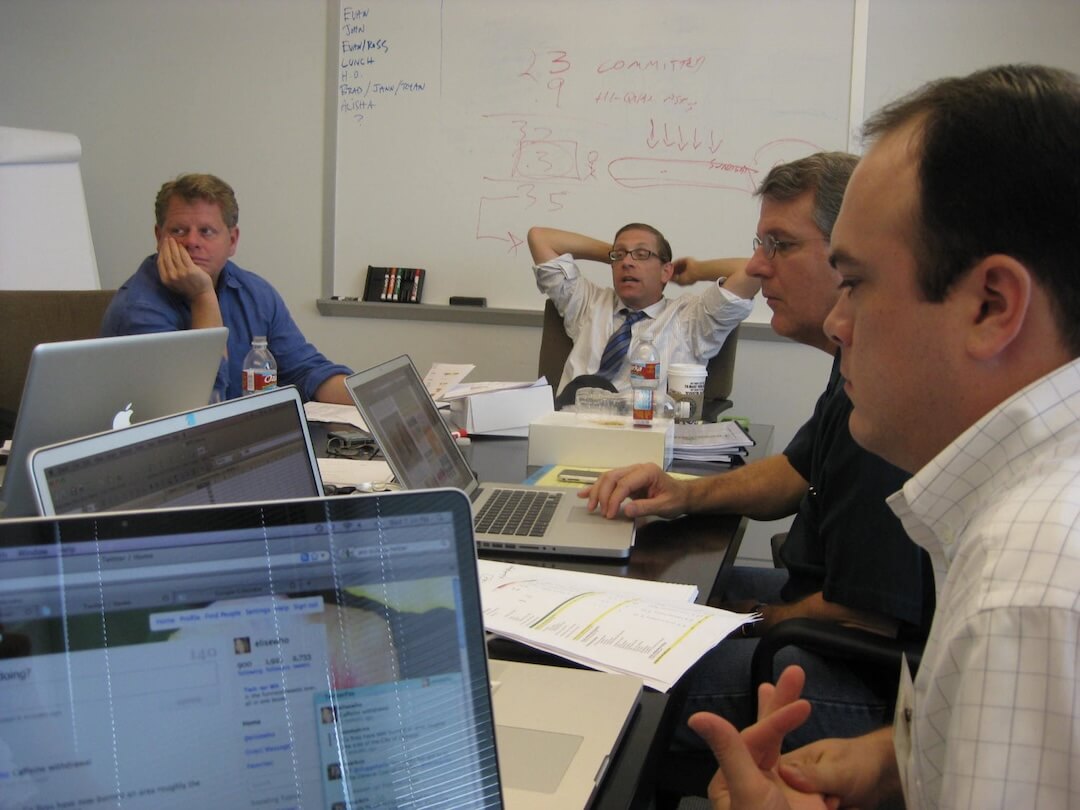Venture capitalist and nonprofit journalism entrepreneur John Thornton died last weekend — far too soon at 59.
You could sum up a formidable legacy Thornton leaves in just five words: Texas Tribune (of which he was a founder and first funder) and the American Journalism Project (of which he was also co-founder and a lead donor). Talented leaders from the Tribune and AJP, who knew him and his accomplishments well, offered eloquent tributes Tuesday. (Here, and here).
I can’t top those close-ups, but would add just a bit more from a 30,000-foot view, formed while covering the nonprofit sector from its first green shoots 20 years ago to its full bloom today.
I spoke with Thornton only once, interviewing him in spring 2019, three months before AJP’s full launch was set to occur. There were surprises. I had the impression he had bought into the ideas of his co-founder, Elizabeth Green, CEO of Chalkbeat. She had a plan for a broad new venture philanthropy to plug “the information gap” left as legacy commercial news precipitously declined. I thought Thornton’s contribution was money and some financial savvy — his own and others.
But he was also deep into details, firing off rapid, aphoristic responses to every question I asked. The piece is worth a look if you would like to hear Thornton’s vision of local news in his voice.
Four samples:
- “Right now, it’s all a spreadsheet … the video game version (of the real thing.) … Or to mix clichés, battle plans don’t survive the first shot.”
- “For $1 in the first year, (we expect) a return of 50 cents; for year two you expect to get $1 back; somewhere between two and five years, each dollar should get double that rate of return.”
- Thornton told me that ventures with strong early records needing a business staff boost would be picked for the first 25 grants without much regard to judgments about their location. “I expect that we will receive some criticism … but we are not going to be making judgments about the neediest places.”
- He did not expect AJP’s well-funded portfolio and operating philosophy to supplant other approaches. “The hope would be that in combination, hitting from different angles … we would be aligned (with other similar efforts). If we can’t jointly move the agenda, we ought to go home and do something else.”
I would also credit Thornton with early insight into what have become truisms for nonprofit startups. A few of those:
- THINK BIG: Most begin comparatively small and stay that way. But a regular flow of much more ambitious ventures is essential, too, producing high-impact journalism at scale and varying routes to sustainability. Thornton and Green said going in that their goal was to raise $1 billion. AJP is not there yet but has hit $250 million.
- BEGIN WITH AT LEAST ONE BIG DONATION: That creates critical breathing room for a startup before more grants or other revenue streams kick in. Thornton provided seven-figure support to both The Texas Tribune and AJP with the understanding that his gifts would taper off after a few years.
- HIRE THE BEST PROS YOU CAN FIND AND GIVE THEM FREE REIN: Stewart Bainum Jr., who pledged to give or raise $50 million launching The Baltimore Banner, told me once that he spent a great deal of time interviewing editor candidates. Once he had picked Kimi Yoshino, formerly of the Los Angeles Times, Bainum said he needed to do little more. Thornton partnered with superstar Evan Smith as CEO from the start for The Texas Tribune launch in 2009. The outlet has remained a talent magnet, even after Smith and editor-in-chief Emily Ramshaw departed.
- JUMP THE HURDLE: As a body of experience builds in the sector, it has been clear that years three to six are often critical. The first wave of grants is expiring. Renewals, new grants or alternative revenue must take up that slack.
AJP passed that test spectacularly in February. At its annual conference, the Knight Foundation, which had initially provided $20 million over five years, announced that it had reupped for another $25 million investment.
This piece originally appeared in The Poynter Report, our daily newsletter for everyone who cares about the media. Subscribe to The Poynter Report here.







